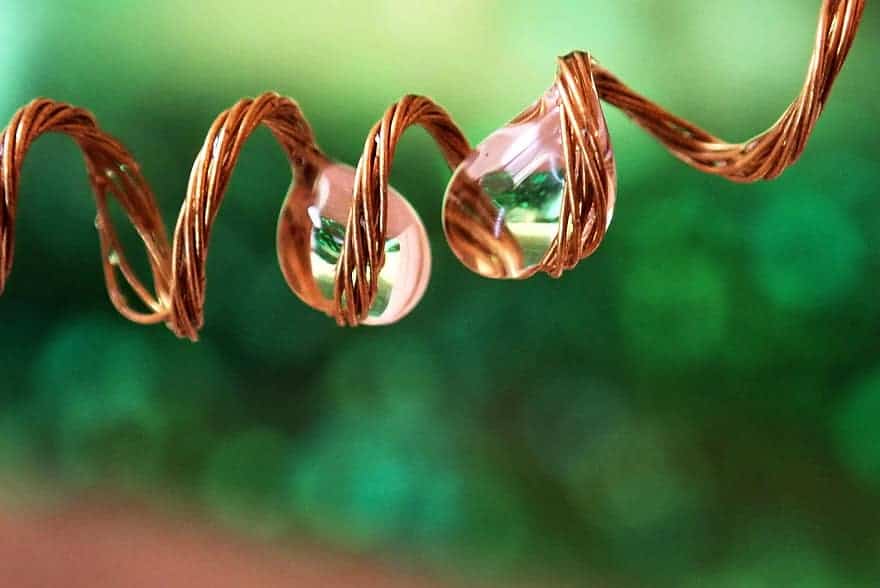We like to share product recommendations with you and hope you like them! Just to make you aware Water Filter Data may collect a small share of sales or other compensation from the links on this page.
If your water tastes like metal, it could be due to a few reasons:
- Increased concentrations of copper or zinc in your plumbing, which can cause a metallic or bitter taste or smell
- Lower pH levels or an excess of trace minerals in your water supply
- High levels of iron, copper, lead, manganese, zinc, or other metallic minerals in your water
To fix the issue, you can try flushing your pipes, installing a water filtration system, or contacting your local water supplier to test and treat your water supply
Have you ever turned on the tap for a drink, only to discover that your water tastes like metal? This isn’t uncommon in older homes that have iron pipes. In fact, in many of these homes there is a subtle metal taste to the water for this reason. That said, there are hundreds of contaminants in our water supply. For that reason, if your water tastes like metal you should attempt to find out what is causing it, so you know if the problem is serious. Even if it’s not, there are things you can do to ensure your water tastes delicious instead of metallic.
There can be a variety of reasons why your water has a taste to it and not all of them are dangerous. If your water tastes like metal, it could be because the pH levels are too low or there could be excess minerals that are in your water supply. If your water tastes like metal, there are things you can do to take the taste away and make sure your water is safe.
Why Does My Water Taste Like Metal?
One of the most common reasons water tastes like metal is because  there are actually trace elements of metal in your water. Many water contaminants contain some metal. Iron, zinc, copper, and manganese are just some of what could be making your water have that metal taste.
there are actually trace elements of metal in your water. Many water contaminants contain some metal. Iron, zinc, copper, and manganese are just some of what could be making your water have that metal taste.
There could be a number of things that make water taste like metal.
If your residential or city pipes are older and rusty, the taste could be coming from the pipes. If your home is older, you may want to check to see what the pipes are made of because if they are made of lead they could be contaminating your water.
It’s also possible that your water tastes like metal because it has a lower pH balance. pH levels level the acidity or the alkaline quality found in a substance. Lower pH levels often signify “soft” water. This means that your water might have a more sour or acidic taste to it. This can also mimic the metallic taste. Various things can cause the pH levels in your water to be higher or lower.
If you’ve noticed that your water tastes like metal, it can be a frustrating and potentially concerning issue. There are a number of potential causes for this problem, and it is important to identify the root cause in order to find the most effective solution.
- Iron: One common cause of water that tastes like metal is the presence of iron in the water. Iron is a naturally occurring element that is often found in well water. It can give the water a metallic taste and can also cause staining of fixtures and laundry. To remove iron from your water, you can use a chemical filtration method, such as potassium permanganate or manganese dioxide. These chemicals work by oxidizing the iron, which makes it easier to filter out. Alternatively, you can use a physical filtration method, like a sand or gravel filter, to remove the iron particles from the water.
- Corrosion: If the pipes in your home are old or made of metal, they may be corroding, which can give your water a metallic taste. This is especially common in homes with pipes that are made of copper, iron, or galvanized steel. Corrosion can also occur in pipes that are made of plastic or other materials, but this is less common. To fix this issue, you may need to replace the pipes in your home. In some cases, using a water filter can also help improve the taste of the water by removing the metallic particles that are causing the taste.
- Minerals: Water can also pick up minerals from the ground as it flows through pipes or aquifers. These minerals can give the water a metallic taste, but they are generally not harmful to drink. In most cases, the taste of the water will improve over time as the minerals are filtered out. If you are concerned about the minerals in your water, you can use a water filter to remove them. Reverse osmosis filters are particularly effective at removing minerals from water.
- Contaminants: In some cases, the metallic taste of the water may be caused by contaminants, such as lead or other heavy metals. If you are concerned about the quality of your water, it is important to have it tested by a professional. A water test can identify the presence of any contaminants and help determine the best course of action to improve the quality of your water.
You can do an at-home pH test as they sell kits in stores that will help you measure your pH levels. The normal pH range recommended by the EPA for drinking water is between 6.5 and 8.5, although the lower the level the more acidic the taste will become.
How Can I Remove the Taste of Metal from My Water?
The first thing you need to do is find out what’s causing your water to taste like metal.
For example, if your pipes are made of iron that could be the cause of it. Iron is not harmful and will not cause you side effects.
If your pipes are made of lead, though, your water could be contaminated. If your water is passing through lead it could be toxic to anyone using it. Make a note of where in your home the water tastes like metal. Is it in every faucet in the home or just certain ones? This will allow you to give a more complete picture of the issue if you get your water tested. Testing the water will give you an idea of if there is a problem and how to fix it.
Can The Metallic Taste of Your Tap Water Affect Your Health?
Your health might be on the line if your drinking water tastes metallic. When it comes to a metallic taste, the source of the flavor largely determines whether you should be concerned for your health or not. For instance, the presence of iron in water gives it a strong taste of metal.
However, you shouldn’t be too concerned if the sweetness originates from iron. On the other hand, metals like zinc and lead (especially if in high concentrations) can seriously impact your health.
Firstly, you should determine whether or not your tap water is safe to drink. Once you get the water tested, you can go for a water filter or other solutions.
What Can I Do in the Meantime?
In general, having and making use of water filters is a great idea.
If your water tastes metallic, but is safe to use, a good water filter will remove that taste. It will be able to filter out many of the impurities in your water, so that it becomes delicious and safer to drink.
There are many water filters on the market these days, from countertop filters to faucet water filters and everything in between. Thanks to the variety, you’ll find water filters that suit all budgets. How much you pay will depend on what you’re looking for.
AquaGear Water Filter Pitcher is a water pitcher that filters your drinking water. If you want something that works when you turn on the water, a Dupont water filter is a whole house water filter, so you have clean, filtered water straight from any faucet in your home!
If you have metallic tasting water, you’ll want to get it checked out. It’s probably nothing bad, but the only way to be sure is to have your water tested. If you have other questions about your water, let us know!
Choosing The Right Water Filter
Water filters are available in different price ranges, functionality, and processes. Below, you’ll come across some basic guidelines that will help you determine the right type of water filter that would suit your needs.
Examine The Water Supply
Firstly, you need to determine the type of contaminant present in the water supply. If you’re sourcing water from a river, well, or private supplier, you can simply get it tested with one of the tools available on the market.
Alternatively, you can reach out to specialists to do the job for you. You can also reach out to the local supply office and obtain a report on the WQI (water quality index). This will help you get an idea of what type of filtration you need.
Check Out The Flow Rate
You must know the flow rate of your dispensers and faucets. Purchasing a filter without knowing the flow rate would lead to variation in pressure. If the flow rate in the pipe is lower than that of the filter, you may have leaks.
With a greater flow rate in the hoses and faucets, you’d experience a low water flow. This would ultimately lead to air filling and frequent choking.
Filtration Objective
The choice of your device must be fuelled by the purpose of the filtration. You may need a filter for large commercial establishments or simply for personal use in your house. If you have a storage tank, it’ll become easier for you to find the most appropriately sized water filter.
However, if the water supply to your home is direct, your daily water requirement would determine the size of the filter. You need to gauge the daily consumption of water through the water meter for better accuracy.
Lastly, remember that it pays to shop around and look for options. The market is competitive, and there are different water filters available. Note: The average pressure in most households is around 100 psi.
You may also get a water filter that you can use for both commercial or personal purposes. We advise you to first ascertain the manufacturer’s reputation and then make a decision.

Ph.D. graduate working as a water quality consultant for many government agencies helping them find solutions to the ever-growing problem of polluted water. Loves a good coffee!



